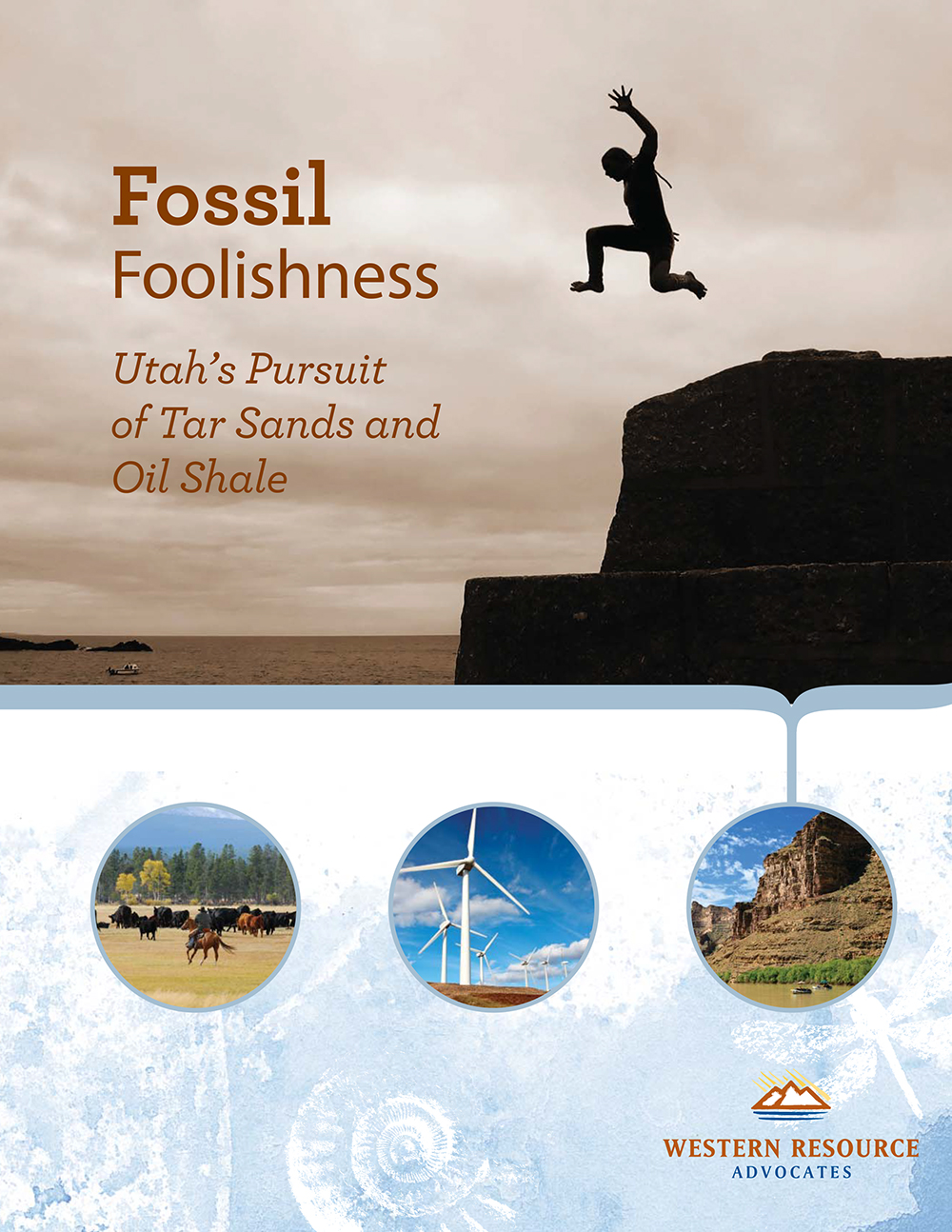In this report, WRA examines what it would mean for Utah should tar sands and oil shale potentially become sources of transportation fuel. What we found is not a pretty picture. Tar sands and oil shale production would not contribute significantly to domestic U.S. oil supply yet industrial production in Utah would have significant negative impacts. Production would require giant mining operations and huge infrastructure development, resulting in enormous damage to water, air, energy, and communities. Commercial shale development would require huge quantities of water in the country’s second most arid state, at the same time adversely affecting water quality.
Development of tar sands and oil shale would further harm Utah’s $7.1 billion recreation economy, which depends on clean water and air quality and provides 113,000 jobs. Climate change is real, and development can only make it worse. Tar sands and oil shale would be among the most carbon intensive energy sources, further contributing to climate change.
But, there is also an opportunity for Utah to become a new energy leader. Instead of focusing finite human and financial capital on commercial tar sands and oil shale development, Utah can provide new, renewable energy sources that will power a vibrant economy and sustain livable communities for our children and grandchildren.
“If our nation has to rely on oil shale as our last source of oil, we’re in deep trouble.”
Don Christiansen, General Manager, Central Utah Water Conservancy District


